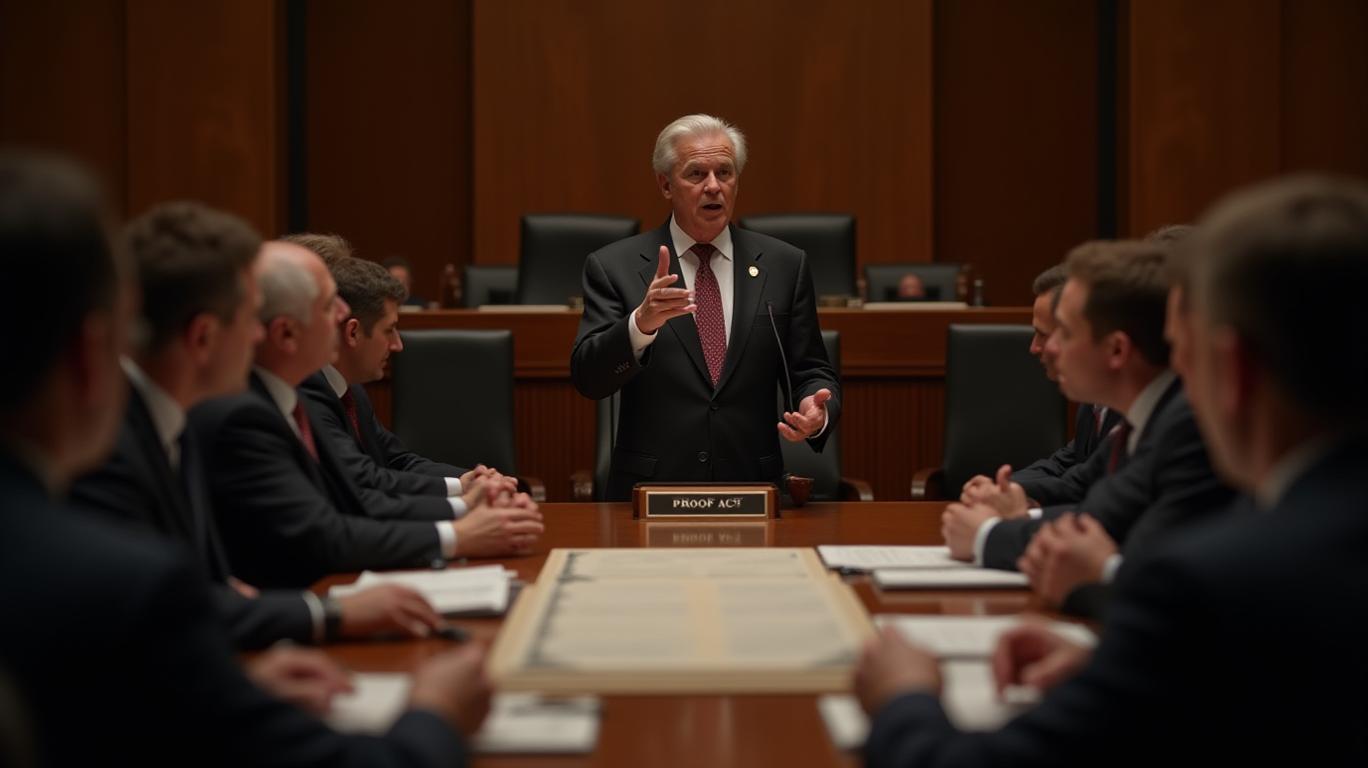U.S. Senators Reintroduce PROOF Act to Enhance Crypto Fund Security
The PROOF Act, reintroduced by U.S. Senators Thom Tillis and John Hickenlooper, aims to enhance the transparency and security of how crypto firms manage customer funds. The legislation seeks to prohibit the co-mingling of customer funds with the firm's own assets and establishes a framework for mandatory proof of reserves. This move is part of a broader effort to clean up the handling of crypto funds, ensuring that customer assets are protected and that firms adhere to stringent regulatory standards.
The PROOF Act is designed to address concerns about the safety and security of customer funds in the crypto industry. By mandating proof of reserves, the legislation aims to provide greater transparency and accountability for crypto firms. This requirement would ensure that firms can demonstrate that they hold sufficient reserves to cover customer deposits, thereby reducing the risk of insolvency and protecting investors from potential losses.
The reintroduction of the PROOF Act reflects a growing recognition of the need for robust regulatory frameworks in the crypto industry. As the use of cryptocurrencies continues to expand, so too does the need for measures that safeguard customer funds and maintain the integrity of the market. The bill's provisions are intended to foster a more stable and trustworthy environment for crypto investors, which could in turn encourage greater participation and investment in the sector.
The PROOF Act also underscores the ongoing efforts by lawmakers to address the unique challenges posed by the crypto industry. By establishing clear guidelines for the management of customer funds, the legislation seeks to mitigate the risks associated with the volatile nature of cryptocurrencies. This includes preventing the misuse of customer assets and ensuring that firms operate in a manner that prioritizes the interests of their clients.
The PROOF Act sets firm rules for how digital asset institutions manage customer funds. Specifically, it prohibits the co-mingling of customer funds with institutional or proprietary assets. This practice, a factor in FTX’s failure, used to allow crypto firms to misuse customer deposits for their own purposes, creating huge risks. By enforcing these protections, the bill seeks to create a more secure environment for both institutional and retail investors.
The bill also requires monthly Proof of Reserves (PoR) inspections by independent auditors meant to confirm that institutions hold assets matching deposits. Auditors must confirm results, sending them to the US Treasury for public release. This requirement will make it easier for investors to ensure that exchanges and custodians have the necessary assets to fulfill their obligations. Failure to comply with these regulations will result in fines, with penalties increasing for repeat offenders.
Proof of Reserves uses crypto tech for openness about a firm’s financial health. Using methods like Merkle trees or zero-knowledge proofs, exchanges and custodians can prove they hold enough assets to cover customer balances. These processes are already established in the crypto space but have not always been uniformly applied. The PROOF Act seeks to standardize these procedures and ensure that audits are conducted by credible third parties, enhancing the reliability of the information provided.
The bill also tackles the need for clear rules and standards in an industry that has lacked consistent oversight. By demanding regular, open PoRPOR-- checks, the PROOF Act ensures that digital asset institutions are held accountable to the public. This approach provides greater transparency, which is essential for rebuilding investor confidence following major industry setbacks.
The reintroduction of the PROOF Act is a significant step forward in the regulation of the crypto industry. It demonstrates a commitment to enhancing the safety and security of customer funds, while also promoting greater transparency and accountability among crypto firms. As the industry continues to evolve, it is likely that further regulatory measures will be introduced to address the unique challenges and opportunities presented by cryptocurrencies. The PROOF Act represents an important milestone in this ongoing effort to create a more stable and trustworthy crypto market.

Quickly understand the history and background of various well-known coins
Latest Articles
Stay ahead of the market.
Get curated U.S. market news, insights and key dates delivered to your inbox.



Comments
No comments yet